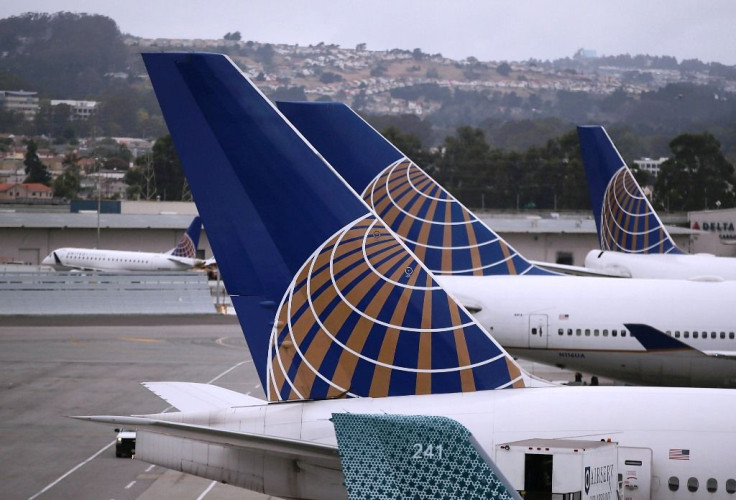United Airlines Stock Price Fall: How Much Did The Passenger-Dragging PR Disaster Cost The Company?

In the week after Chicago airport security violently dragged physician David Dao from a United Airlines flight April 9, United Continental Holdings (UAL) became a public punching bag — and its share price has taken quite a hit as well, plunging as much as 7 percent in after-hours and early morning trading at the start of last week. It closed Thursday at $69.08, 2 percent lower than its value the previous week’s market close. (Markets remained closed Friday for the holiday.)
@united @FoxNews @CNN not a good way to treat a Doctor trying to get to work because they overbooked pic.twitter.com/sj9oHk94Ik
— Tyler Bridges (@Tyler_Bridges) April 9, 2017
@CNN and those tuning in to the @United #flight3411, the Dr. was NOT intoxicated. He was in his right mind prior to hitting his face. pic.twitter.com/ZIalP7LDC8
— Jayse D. Anspach (@JayseDavid) April 11, 2017
The company's market capitalization lost about $570 million in the week after the incident, but the real impact of the company’s reputational damage may not play out for several months, according to Georgetown McDonough School of Business Professor Simon Blanchard, who specializes in consumer psychology.
“It’s hard for me to imagine that there’s going to be a lot of short-term downward pressure on the stock,” he said. Short-sellers may have benefitted, he explained, but there’s little chance that the negative publicity would quickly translate to a drop in revenue since flyers tend to buy their tickets far in advance. Any boycott of the brand, Blanchard said, is “not going to affect corporate travelers, who are booking United [if] it’s the cheapest.”
A change in leadership could spur some volatility in the airline’s share price, he noted, and if Dao sues United, as his lawyer suggested he would at a press conference Thursday, a prolonged litigation effort could drag down shares. Otherwise, Blanchard expected a rebound similar to that of Samsung Electronics Co.’s (005930.KS ) shares following its exploding Galaxy Note 7 debacle in September.
“It was a very vivid, graphic, concrete image that people see and they react to it,” Blanchard said of Samsung’s devices catching on fire, comparing the social media moment to the spread of videos of Chicago airport security dragging Dao through the plane cabin. “But the stock went back up.”
Doug Hesney, head of the PR firm Makovsky’s financial and professional services arm, had a different take on the Samsung comparison.
“With Samsung — once they had the recall, you actually couldn’t buy those phones. You literally could not buy their flagship product because it was exploding,” he said. Still, he cautioned that, while any consumer protest against United wouldn’t be fueled by the sort of political passion at the root of boycotts of Chick-fil-A and Uber, “for people who’ve heard of this and seen this — and, let’s face it, who hasn’t? — it may give people pause before booking.”
As a well-established company, however, as opposed to the something like Snap Inc., United shouldn’t take quite as much of a hit, at least in its first quarter 2017 earnings, slated for release after the market close on Monday; there will be an earnings conference call Tuesday at 10:30 a.m. EST .
“It’s way too soon — I would look for the second quarter earnings to see if this is going to have an implication in the long term,” Hesney said, adding that, this time around, it’ll be the earnings conference call, not the numbers, that will matter to investors. “They’re going to have to be very transparent on their earnings call on how they’re dealing with this PR issue.”
Correction: 4/17 1:30 pm: United was scheduled to release its earnings on Monday, not Tuesday as originally reported.
© Copyright IBTimes 2025. All rights reserved.






















